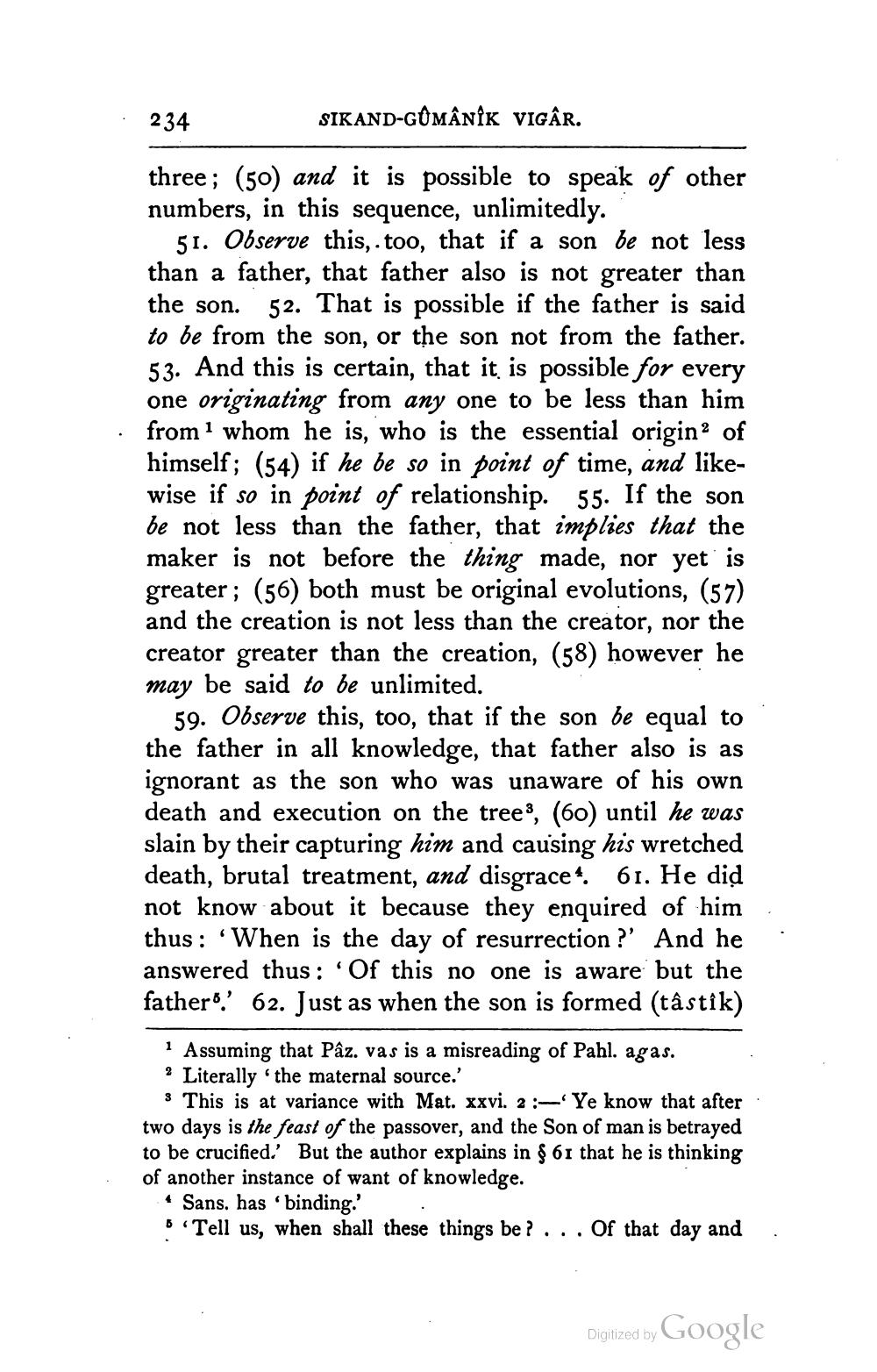________________
· 234
SIKAND-GÛMÂNÍK VIGÂR.
three; (50) and it is possible to speak of other numbers, in this sequence, unlimitedly.
51. Observe this, too, that if a son be not less than a father, that father also is not greater than the son. 52. That is possible if the father is said to be from the son, or the son not from the father. 53. And this is certain, that it is possible for every one originating from any one to be less than him from 1 whom he is, who is the essential origin of himself; (54) if he be so in point of time, and likewise if so in point of relationship. 55. If the son be not less than the father, that implies that the maker is not before the thing made, nor yet is greater; (56) both must be original evolutions, (57) and the creation is not less than the creator, nor the creator greater than the creation, (58) however he may be said to be unlimited.
59. Observe this, too, that if the son be equal to the father in all knowledge, that father also is as ignorant as the son who was unaware of his own death and execution on the trees, (60) until he was slain by their capturing him and causing his wretched death, brutal treatment, and disgrace 4. 61. He did not know about it because they enquired of him thus : 'When is the day of resurrection ?' And he answered thus: Of this no one is aware but the fatherB.' 62. Just as when the son is formed (tâstîk)
.
1 Assuming that Pâz. vas is a misreading of Pahl. agas. ? Literally the maternal source.
3 This is at variance with Mat. xxvi. 2:— Ye know that after two days is the feast of the passover, and the Son of man is betrayed to be crucified.' But the author explains in $ 61 that he is thinking of another instance of want of knowledge.
Sans, has 'binding.' 6 "Tell us, when shall these things be? ... Of that day and
.
Digitized by Google




